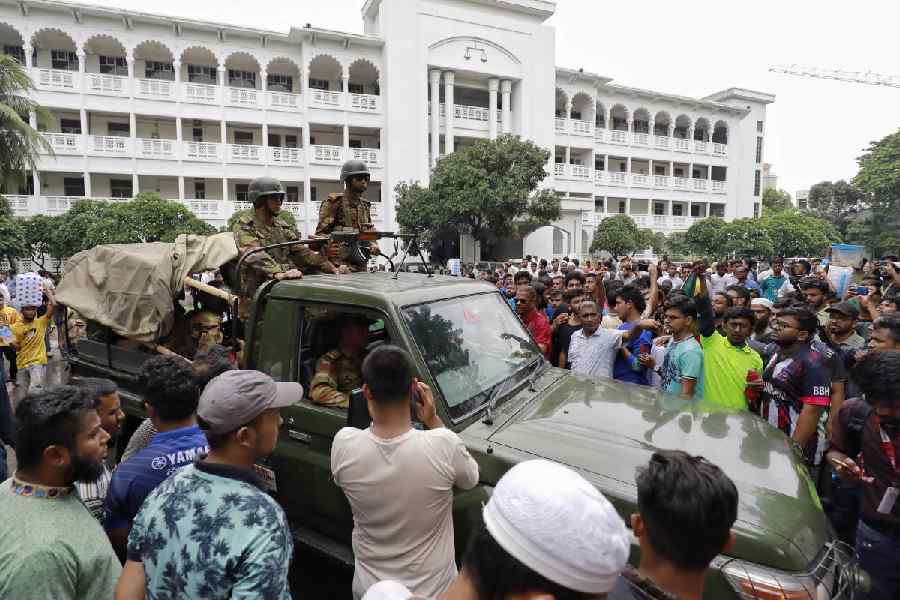Student demonstrators who ousted Prime Minister Sheikh Hasina have rejected calls from Bangladesh’s two main political parties for quick elections and are considering creating their own party to cement in place reforms, according to interviews with four protest leaders. Their hope: to avoid a repeat of the last 15 years, in which Hasina ruled the country of some 170 million with an iron fist.
That was until June, when a handful of students — most in their early-to-mid 20s — began organising demonstrations against a law reserving coveted government jobs for certain segments of the population.
Within weeks, Hasina’s government was swept away by an upswell of popular anger at the brutality of its crackdown on anti-quota protesters. At least 300 people were killed in the single largest bout of violence since Bangladesh’s war of independence from Pakistan in 1971. The movement was hailed as a Gen Z revolution, spurred by young Bangladeshis’ anger at years of jobless growth, allegations of kleptocracy, and shrinking civil liberties.
An interim government headed by Nobel Peace laureate Muhammad Yunus — which includes two student leaders in senior positions — now runs the country.
For most of the past three decades, Bangladesh has been governed either by Hasina’s Awami League or the Bangladesh Nationalist Party of her rival Khaleda Zia.
Student leaders are discussing forming a political party to end the duopoly, said Mahfuj Alam, who chairs a committee tasked with liaising between the government and social groups such as teachers and activists.
A decision would be made in about a month, the 26-year-old law student told Reuters, adding that protest leaders wanted to consult widely with ordinary voters before deciding on a platform. Details of the students’ plans have not previously been reported.
“People are really tired of the two political parties. They have trust in us,” he said, at the gates of Dhaka University’s Arts Faculty. Tahmid Chowdhury, another student coordinator, said there was a “high chance” they would form a political party. They were still working out their programme.











